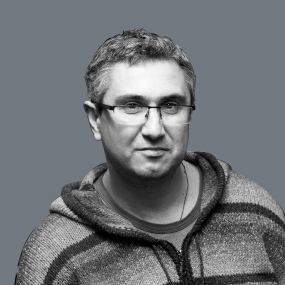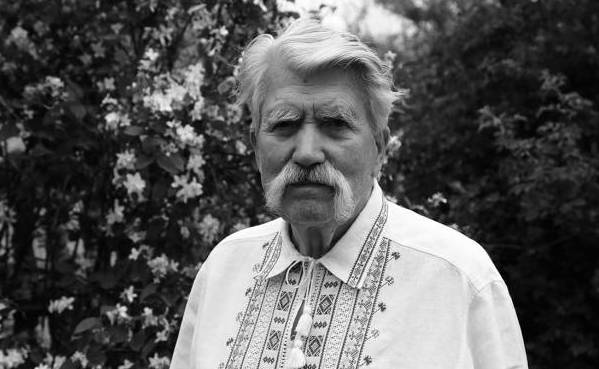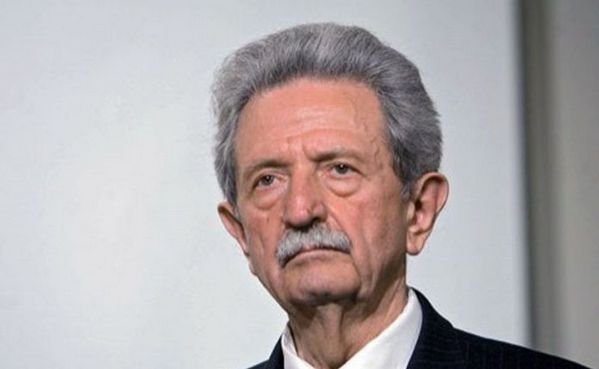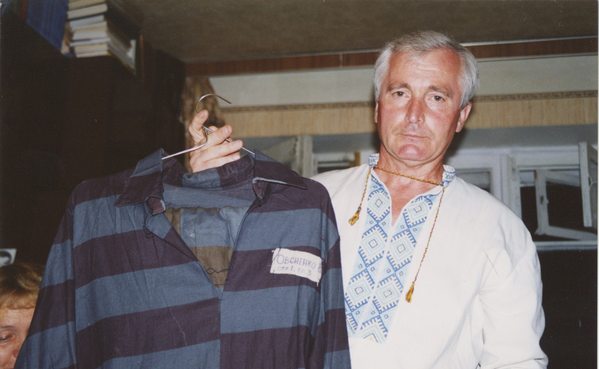Ivan Hel
Hel Ivan Andriiovych (b. 17 July 1937, Klitsko village in Horodok County in Lwów Viovodeship, Republic of Poland – d. 16 March 2011, Lviv, Ukraine).
He was born into the family of a former UGA fighter, who used to be the president of local "Prosvita" society, but with the Soviets coming became the head of a collective farm, who yet supported the OUN resistance. For this, Ivan Hel's father was sentenced to 20 years in penal colonies in 1950.
In 1952, Ivan refused to join the Komsomol, and thus was expelled from the 10th grade of school. After finishing an evening school in Sambir, he tried to enroll at the Lviv University, but wasn't accepted on the grounds of being a "son of a Banderivets". Having no possibility to attend a university, Ivan Hel found a job as a metalworker at the Lviv Forklift Plant, and later served in the Soviet military.
Following the discharge from the army, he enrolled at a correspondence department of the Faculty of History of the Lviv University. Later, he transferred to the evening department, simultaneously laboring as a metalworker at a local electrovacuum plant. At this particular time, after meeting Mykhailo Horyn, he joined the dissident movement, and took up writing and distributing underground press.
On 24 August 1965, Ivan Hel was arrested, and, in March the next year, sentenced to three years in maximum security penal colonies for "anti-Soviet campaigning and propaganda" and "organizational activities". He served his term in Mordovian camps, where he met many Soviet dissidents. He was an active defendant of the Ukrainian Greek Catholic Church. For instance, in 1967, he appealed to the Presidium of the Verkhovna Rada of the Ukrainian SSR twice, with letters concerning this matter.
Following his release in 1968, he lived in the town of Sambir in Lviv Region, since there was no way for him to live in Lviv. Through "samizdat", he printed Valentyn Moroz's "Amidst the Snows", Ivan Dziuba's "Internationalism or Russification?", a book of letters Mykhailo Horyn wrote behind the bars, a collection of poems by Mykola Kholodny "Scream from the Grave", and many articles of the representatives of Ukrainian dissident movement.
In 1972, he was arrested for the second time, sentenced to 10 years in colonies and five years in exile, and declared an especially dangerous recidivist. He spent his camp term in Mordovia and Perm region, and his exile – in Komi ASSR. While in camps, he joined the political prisoners' activities vigorously, took part in hunger strikes; in total, he went without food for 300 days. In captivity, he wrote a book "The Facets of Culture", where he analyzed the state of Ukrainian culture during the Russian occupation. This book, distributed through the underground press, was published in 1984 in London under the alias "Stepan Hoverla" (in Ukraine it appeared in Lviv in 1993).
In 1987, Ivan Hel returned to Ukraine and joined its social and political life. In the spring of 1987, together with other Ukrainian dissidents, he revived the "Ukrainsky Visnyk" magazine, becoming its executive secretary. Furthermore, Ivan Hel defended rights of the Greek Catholic Church actively, – he founded and headed the "Committee for the Defence of the Ukrainian Greek Catholic Church", edited "Khrystyiansky Holos" (lit. – "The Christian Voice") magazine, and organized mass religious and political events in Galicia. He joined the work of the "Memorial" and the People's Movement of Ukraine, and co-founded the Ukrainian Initiative Group for the Release of the Prisoners of Conscience.
Between 1990 and 1994 he worked as the first deputy of the Chairman of the Lviv Regional Council, later he was the President of the Regional Commission for the Restoration of Rights of the Rehabilitated. He took an active part in social and political life, was awarded several national Ukrainian orders for human rights and dissident activities, and a personal contribution to the revival of the Ukrainian Greek Catholic Church.
He died in 2011 in Lviv, and was buried at the Lychakiv Cemetery.

Повне інтерв'ю читайте у книзі "Дисиденти".







